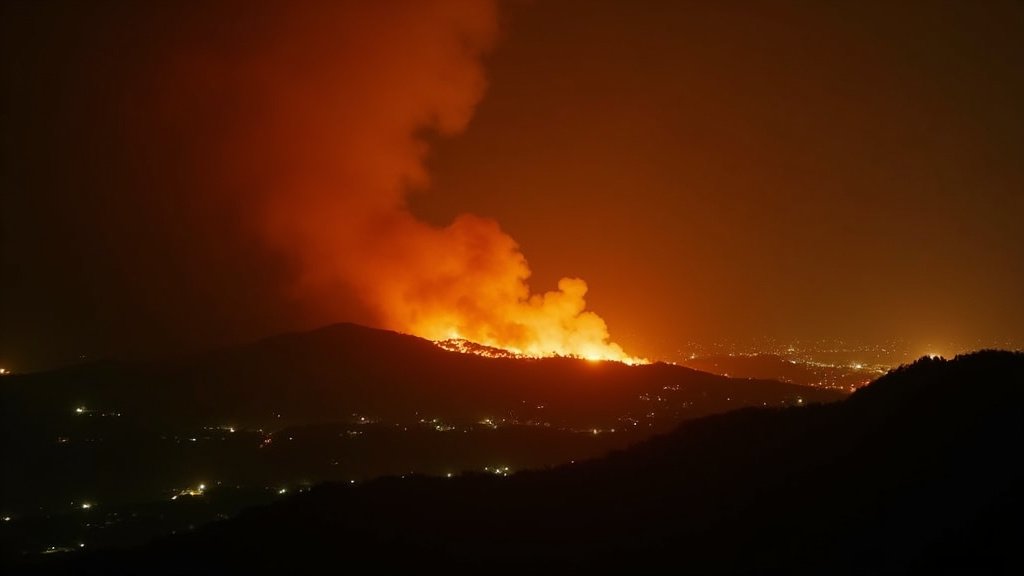Arctic’s Hidden Crisis: Accelerating Glacier Melt Disrupts Delicate Coastal Ecosystems
A new report combining sophisticated satellite analysis with extensive underwater surveys reveals an alarming environmental shift occurring on the Arctic seabed. Scientists have found that the accelerated melting of land-based glaciers is driving a faster-than-anticipated influx of freshwater and sediment into critical coastal marine zones, placing significant and unforeseen pressure on habitats vital for biodiversity and regional fisheries.
This research highlights a previously underappreciated consequence of climate change: the direct and rapid impact of terrestrial ice melt on marine ecosystems located kilometers away from the glacier fronts. The findings suggest that while melting ice has long been a symbol of global warming, its immediate, disruptive effects on the ocean floor are only now becoming fully clear.
The Findings: A Convergence of Data
The study, drawing upon data from multiple sources, including high-resolution satellite imagery tracking glacier retreat and meltwater plumes, alongside detailed underwater surveys capturing seabed topography, sediment layers, and biological presence, paints a stark picture. Researchers observed unusually high rates of sedimentation and substantial freshening of coastal waters directly linked to the runoff from rapidly melting glaciers.
Satellite data provided the macro-level view, quantifying the volume and speed of ice loss and mapping the paths of meltwater flows into the ocean. This was complemented by painstaking work underwater, using remote operated vehicles (ROVs) and core samples to examine the physical environment and biological communities on the seabed. It was the convergence of these datasets that allowed scientists to directly correlate the rate of glacier melt with the changes observed on the ocean floor.
Crucially, the rate of change documented by the study exceeded expectations. While some level of sedimentation and freshwater input is natural near glaciated coasts, the accelerated pace driven by human-induced climate change is creating conditions that many seabed organisms are ill-equipped to handle.
Mechanism of Impact: Sedimentation and Freshening
The primary mechanisms by which accelerating glacier melt impacts the seabed are increased sedimentation and the rapid introduction of large volumes of freshwater.
As glaciers melt at unprecedented rates, they release not only water but also vast quantities of rock flour – fine sediment ground by the ice over millennia. This sediment is carried by meltwater streams into the ocean, where it settles on the seabed. Excessive sedimentation can literally smother benthic organisms, such as sponges, corals, and various invertebrates, which form the structural basis of many seabed habitats. It can also obscure sunlight penetration, affecting photosynthetic organisms like algae, and alter the texture and composition of the seafloor, making it unsuitable for species adapted to different substrates.
Simultaneously, the influx of large volumes of freshwater changes the salinity and density of the coastal seawater. Many marine organisms, particularly those living on the seabed, are highly sensitive to changes in salinity. Rapid or significant reductions in salt concentration can stress or kill species adapted to more saline conditions. Furthermore, changes in water density driven by freshwater input can affect ocean circulation patterns near the coast, potentially altering the distribution of nutrients and oxygen.
Ecological Consequences: Threat to Biodiversity and Fisheries
The unforeseen pressure on seabed habitats has significant ecological consequences. Seabed ecosystems are the foundation of marine biodiversity in many coastal areas, providing nursery grounds, foraging areas, and shelter for a vast array of species, including fish, crustaceans, and mollusks.
Species like cold-water corals, often slow-growing and fragile, are particularly vulnerable to sedimentation. Other filter-feeding organisms that rely on clear water are also severely impacted. The disruption of these foundational communities can have cascading effects throughout the food web.
The health of these seabed habitats is intrinsically linked to the productivity of regional fisheries. Many commercially important fish species depend on healthy benthic environments at some stage of their life cycle. Damage to nursery grounds or food sources on the seabed can lead to declines in fish populations, threatening the livelihoods of communities that rely on fishing.
The report indicates that the speed of these environmental changes leaves little time for species to adapt or migrate, increasing the risk of localized extinctions and significant restructuring of seabed ecosystems.
Broader Implications: A Cascading Climate Impact
This research underscores the complex and often unexpected ways in which climate change impacts Earth’s systems. While the melting of land ice is a well-understood consequence of global warming, the speed and nature of its impact on distant marine environments highlights the need for a more holistic understanding of climate feedbacks and interconnectedness.
It demonstrates that the effects of rising global temperatures are not confined to obvious changes like sea level rise or atmospheric warming but penetrate deep into marine environments, altering fundamental physical and ecological processes.
Conclusion: Urgent Need for Monitoring and Action
The findings represent a critical warning sign. The Arctic seabed, a vital but often overlooked component of the global ocean ecosystem, is undergoing rapid, stress-inducing changes directly attributable to accelerated glacier melt.
Scientists emphasize the urgent need for continued and expanded monitoring of these coastal Arctic environments to fully understand the scale and long-term implications of these changes. The report reinforces the necessity of global efforts to mitigate climate change by reducing greenhouse gas emissions, as the health of even the planet’s most remote and seemingly resilient ecosystems is proving to be highly vulnerable to a warming world.





